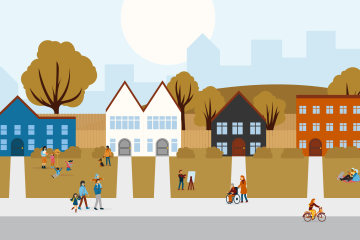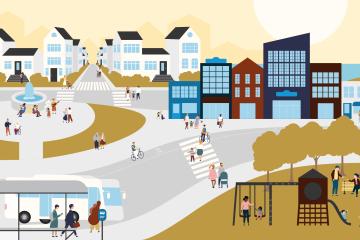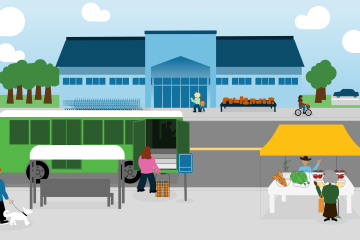Body
Meet the Grantees
Center for Neighborhood Technology
Chicago, IL
Exploring the effects of zoning and parking minimums on parking spot utilization and housing development.
Gathering Strength
Louisville, KY
Analyzing the gap between the supply of and the demand for accessible, affordable housing for residents with disabilities.
Hawai'i Appleseed Center for Law and Economic Justice
Honolulu, HI
Investigating the gaps between residents' transportation needs and multimodal transportation access.
Body


